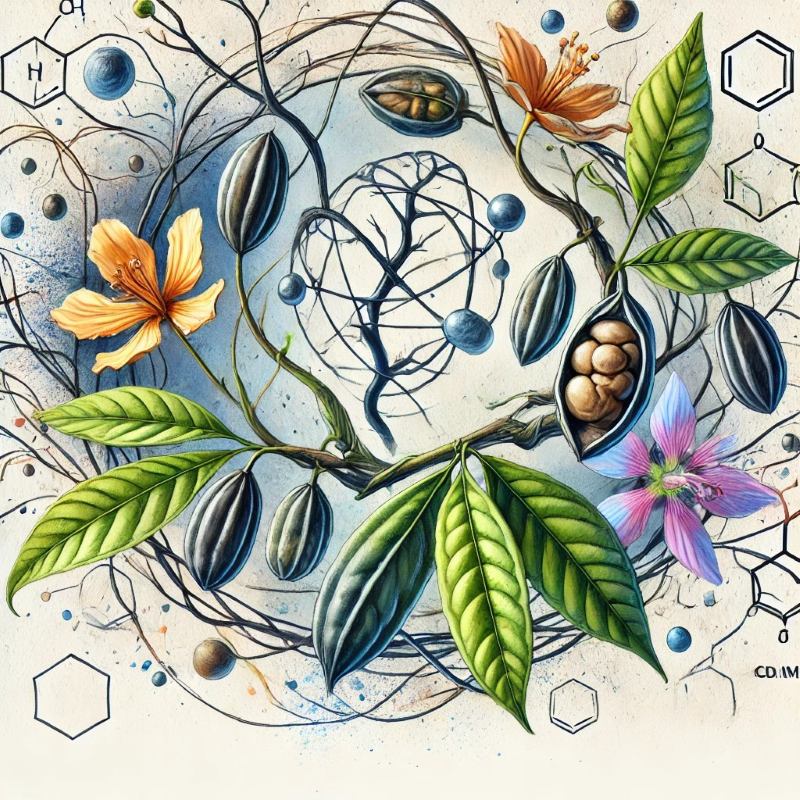Mucuna Pruriens: A Natural PD Therapy

Exploring the therapeutic potential of Mucuna pruriens (MP) in treating Parkinson’s disease (PD) offers an intriguing alternative to synthetic medications. This blog post delves into the pharmacological benefits of MP, focusing on its naturally occurring L-DOPA content, the dosing protocols for its use, and its incorporation into mainstream PD treatment paradigms.
Natural L-DOPA Source in Parkinson’s Management
Mucuna pruriens, commonly known as velvet bean, contains significant amounts of L-DOPA, a key therapeutic agent used in the management of Parkinson’s disease. Unlike synthetic L-DOPA, the L-DOPA in MP is accompanied by a spectrum of naturally occurring compounds that may enhance its bioavailability and reduce side effects associated with synthetic forms.
Bioavailability and Synergistic Effects: MP provides a natural matrix that may facilitate better absorption and utilization of L-DOPA, enhanced by other intrinsic compounds in the plant that exhibit antioxidant and neuroprotective properties.
Reduced Side Effects: The natural composition of MP is thought to provide a more gradual release of L-DOPA, which could lead to fewer peak-dose dyskinetic effects—a common side effect associated with synthetic L-DOPA therapies.
Dosage and Administration Protocols
The dosing of MP is crucial for achieving optimal therapeutic outcomes while minimizing side effects:
- L-DOPA Content: MP’s L-DOPA concentration can vary, typically ranging from 3-10%. Accurate dosing is essential, relying on standardized extracts to ensure consistent L-DOPA intake.
- Administration Guidelines: MP is generally administered in powdered form, taken with water on an empty stomach to optimize L-DOPA absorption.
- Dose Titration and Monitoring: Starting with a low dose and gradually increasing based on patient response and tolerance is recommended, with regular monitoring by healthcare professionals to adjust the treatment as necessary.
Integrating Mucuna Pruriens into Mainstream Treatment
The incorporation of MP into standard Parkinson’s treatment protocols could significantly enhance therapeutic strategies, particularly for patients who experience adverse effects from synthetic L-DOPA.
- Adjunct Therapy: Initially, MP might be used alongside synthetic L-DOPA to reduce the dosage and side effects of the latter.
- Holistic Approaches: MP could be part of a broader, integrative treatment approach that includes dietary modifications, physical therapy, and lifestyle adjustments to support overall neurological health.
Challenges in Adoption: Despite its potential, several barriers must be addressed to integrate MP fully into treatment paradigms, including the standardization of dosing, long-term safety studies, and regulatory approvals.
Conclusion
Mucuna pruriens represents a promising, natural alternative for managing Parkinson’s disease, with the potential to offer a more balanced approach to symptom management and possibly even disease progression. Ongoing research and clinical trials will be pivotal in validating its efficacy and safety for widespread clinical use.
Keywords: Mucuna pruriens, Parkinson’s disease, natural treatments, L-DOPA, neurodegenerative diseases, dopamine therapy, herbal medicine, clinical trials, bioavailability, neuroprotection, side effects, holistic health, adjunct therapy.
AI-generated medical content is not a substitute for professional medical advice or diagnosis; I hope you found this blog post informative and interesting. www.parkiesunite.com by Parkie
DALL-E Prompt for Watercolor Image: “An artistic watercolor depiction of Mucuna pruriens pods and leaves, intertwined with symbolic representations of neurons and dopamine molecules, illustrating the natural connection between the plant and its therapeutic effects on Parkinson’s disease.”
Keywords: natural PD treatment, Mucuna pruriens therapy, L-DOPA source, Parkinson’s alternative, herbal neuroprotection.